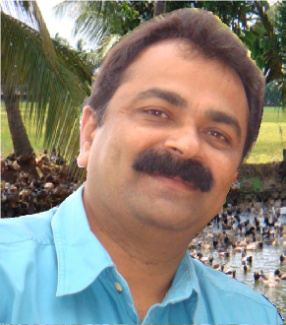| 个人简介 | |
|---|---|
 Prof. G. H. Jain K.K.H.A. Arts, S.M.G.L. Commerce and S.P.H.J. Science College, India |
|
| 标题: Principles, requirements, key factors for gas sensor and the role of nanomaterials in gas sensing applications | |
| 摘要: The operation of metal oxide (MOX) based gas sensor is usually described in terms of two fundamental frameworks. The first considers mainly the space charge effects/changes of the electric surface potential due to surface reactions such as inosorption of gaseous molecules, chemical reactions, and catalysis. The second framework considers the sensing effects via changes in the bulk MOX stoichiometry. i.e., by the variation of the amount of the bulk (surface) oxygen vacancies. Gas sensor technology has advanced remarkable during past few decades and has become one of the indispensable technologies for modern society. Varieties of gas sensors are commercially available and using innovative ideas, efforts are being made to develop next generation gas sensors having small size with very low power consumption. The ultimate model for this is probably given by the sensory organs of our own body, which are implanted finely and work well with a very modest amount of energy. In order to achieve this goal, it is essential that various aspects of gas sensors are seriously considered. These include understanding of gas sensing mechanisms, development of new materials and methods to synthesize them into selective sensors, pre and post deposition process and post exploring intelligent sensing system, etc. However, in spite of so big variety of approaches to MOX gas sensor design the basic operation principles of all gas sensors above mentioned are similar for all the devices. The analysis of various parameters of metal oxides and the search of criteria, which could be used during optimization for sensing performance of MOX gas sensor, were the main objectives of this review. For these purposes the correlation between electro-physical, thermodynamic, surface, electronic, structural properties, catalytic activity and gas-sensing characteristics of metal oxides designed for solid-state sensors was discussed. It has been discussed the role of metal oxide manufacturability, chemical activity, and parameter’s stability in sensing material choice as well. Keywords-MOX gas sensor; Structural properties; Gas response; Selectivity; Response and recovery times, nanomaterials for gas sensor | |
| 简介: Dr. Gotan Hiralal Jain is presently working as Principal at S.N.J.B.s K.K.H.A. Arts, S.M.G.L. Commerce and S.P.H.J. Science College, Chandwad, India. He is actively involved in the field of research for last 20 years. He completed his Ph.D. in 2007 and the topic for his studies was metal oxide semiconductor Gas Sensors. His areas of interest in field of research are thin and thick films gas sensors, study and synthesis of nanomaterials by various techniques especially for gas sensing applications.So far, his, more than 70 research papers have been published in the journals of international repute. He has presented the research papers in several international conferences across the world.During presenting papers internationally, five times he has been awarded for oral/poster presentations in various national/international symposia. Considering his contribution and the quality of his research, he has been invited to deliver talk in various international conferences.He has delivered talks at various National and International conferences, few of them are: ICST-2007, Massey University, New Zealand, MS&T-2008, Pittsburgh, USA, EUOROMAT-2009, Glasgow, Scotland, UK, MINM-2010, CMRD Institute, Cairo, Egypt, ICST-2011, Palmerston North, New Zealand and ICPAC-2012, Mauritius, Trinity College, Dublin, Stony Brooke University, Long Island, USA-2015, University of Nsukka, Nigeria (2018).His talks have been appreciated in ICST-2010 ,Italy and ICST-2011 New Zealand respectively.He also presented research papers at MRS-2013, Adis Ababa, Ethiopia, AFM-18, China and at University of Nigeria, Nsuka.Presently he is a reviewer for various international referred journals such as Elsevier and Springer, and he is a member of various international advisory boards/ committees.His two reference books have been published. He has also contributed chapters in international book series published by Springer-Verlag.Under his guidance, eleven research students have successfully completed their Ph.D. degree. Presently, three students are working, for their Ph.D. degree, under his supervision. And for other six research students, he is working as a Co-guide.In 2011, for his contribution in the field of research, he was honoured by The Best Teacher Award by SPPU, Pune.In 2012-13, Government of Maharashtra also honoured him by "Ideal Teacher Award" (in the region of University of Pune) at the hands of Hon. Governor of State of Maharashtra. He is also honoured by BHASKAR RAYA AWARD, given by Indian Physics Association (Pune Chapter).Recently, in 2019, he is awarded as the Best Principal by the S.P. Pune University. | |
